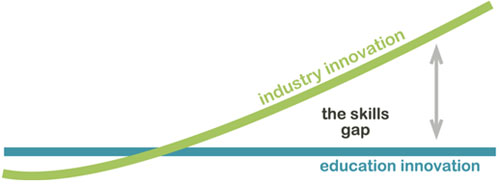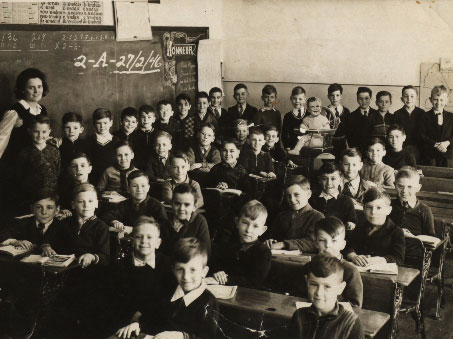Lucian Tarnowski of BraveNewTalent talks about how this learning technique fits with the coalition’s vision for Britain’s future.
So what’s this Big Society idea all about? Will it work? Can government really pave the way for individuals to increase their impact on society? The jury is still out…
I am optimistic for the Big Society. When Cameron announced it during the run up to the general election it was outlined as a complete shift in the way that the UK government would interact with society. His vision was to reduce the involvement of the government in the day-to-day activities of its citizens and enable them to take back decision making powers. This is a positive move and one that presents a unique opportunity for individuals to maximise their impact on issues they feel strongly about.
I am personally so optimistic about this move that I submitted a Big Society proposal on behalf of BraveNewTalent.com to Mark Prisk MP and David Willetts MP.
I am passionate about education. However, I believe categorically that the current formal education system is broken and no longer fit for purpose for the new global workforce. Unesco has estimated that the next 30 years will see more people go through formal education globally than the entire history of humanity. I ask the UK government: is this the right kind of education?
Our education institutions are failing to produce a workforce with the right skills they need for the new world of work. The largest bottleneck to growth in every economy is skilled talent. The education system simply can’t cope with the pace of change in industry – every year schools and universities fall further and further behind.
We are living in times of exponential change. The last 20 years has seen more change in industry than the 200 years before them. However, the education system has remained largely on the same path since the Second World War. Innovation is not a word one associates with the British education system. In fact, the formal education system is being left behind by the innovation happening in industry. This is developing a growing skills gap:

I would argue that the formal education as we know it is a product of the industrial revolution. It is set up to support an industrial age not a digital age. However, our very mode of production has changed. The very fabric of societies make up has changed. We have entered a digital revolution – we have gone beyond the industrial age. If Britain is going to keep its position of strength on the World Stage we need to begin transitioning our education system towards the digital world and the networked world. Our relevance in the world depends on it.
I believe where there is change there is opportunity for entrepreneurship. This large scale rollback of government -provided services has brought with it a number of opportunities for SMEs and entrepreneurs. For me, it’s a chance to introduce new paradigm thinking around the model of education.
I strongly believe if we only hope that schools and universities will provide the solution, the skills gap will only grow further. 30% spending cuts to Britain’s education system may just make the system fail 30% as fast.
So what’s the solution? How could we add value to the Big Society? At BraveNewTalent, we are working on a disruptive idea that sees employers and industry as a solution to this crisis. We are developing a new way for employers to deliver training content off the payroll. We want to give companies a global distribution channel using social media to train and develop young talent. Employers will be able to dramatically improve the inefficiencies of the recruitment model. By developing the University of Industry, employers can better prepare future generations for the world of work. They will be able to use the response to the training as a way to hire the best people. We all know that companies that hire the best people are the most successful.
I see employers and social media as the most scalable solution to bridge the global skills gap. Many employers are already doing this in a real-world way, through work experience, internships and apprenticeships. However, social media provides a new reach and distribution channel for them to solve one of societies biggest problems. This could be seen as a new model of ‘virtual internships’. However, when Gen Y (those born between 1980-2000) spend longer on Facebook than in they do in lectures, fact, this presents a phenomenal channel to distribute quality training content and a new way for employers to identify and hire the best people. Quite simply, it’s a no brainer.
A recent survey by the CBI demonstrated that 49% of employers were already encountering a skills shortage, and that 59% expected the situation to be harder in the future. This skills shortage is one of the main issues that prompted me to set up BraveNewTalent.com – a social recruiting website that aims to take both the recruitment and education models through a paradigm shift. It is the same reason I am proposing this new model of education to gain the support of the government through the Big Society.
It’s very simple to complain that the education system isn’t turning out the candidates we want to employ, but I think it’s now time we – as employers – embrace the values behind ‘Big Society’ and tackle the problem head on.
Lucian Tarnowski is the founder of BraveNewTalent.com, Europe’s first social recruiting platform that builds talent communities for employers. Lucian has been honoured as Europe’s youngest Young Global Leader (YGL) by the World Economic Forum and is winner of numerous awards including the UK’s Global Enterprising Young Brit. BraveNewTalent has received support from the UK government as a ‘Technology Company of Exceptional Potential’.
Lucian Tarnowski of BraveNewTalent talks about how this learning technique fits with the coalition's vision for Britain's future.
So what's this Big Society idea all about? Will it work? Can government really pave the way for individuals to increase their impact on society? The jury is still out...
I am optimistic for the Big Society. When Cameron announced it during the run up to the general election it was outlined as a complete shift in the way that the UK government would interact with society. His vision was to reduce the involvement of the government in the day-to-day activities of its citizens and enable them to take back decision making powers. This is a positive move and one that presents a unique opportunity for individuals to maximise their impact on issues they feel strongly about.
I am personally so optimistic about this move that I submitted a Big Society proposal on behalf of BraveNewTalent.com to Mark Prisk MP and David Willetts MP.
I am passionate about education. However, I believe categorically that the current formal education system is broken and no longer fit for purpose for the new global workforce. Unesco has estimated that the next 30 years will see more people go through formal education globally than the entire history of humanity. I ask the UK government: is this the right kind of education?
Our education institutions are failing to produce a workforce with the right skills they need for the new world of work. The largest bottleneck to growth in every economy is skilled talent. The education system simply can't cope with the pace of change in industry – every year schools and universities fall further and further behind.
We are living in times of exponential change. The last 20 years has seen more change in industry than the 200 years before them. However, the education system has remained largely on the same path since the Second World War. Innovation is not a word one associates with the British education system. In fact, the formal education system is being left behind by the innovation happening in industry. This is developing a growing skills gap:

I would argue that the formal education as we know it is a product of the industrial revolution. It is set up to support an industrial age not a digital age. However, our very mode of production has changed. The very fabric of societies make up has changed. We have entered a digital revolution – we have gone beyond the industrial age. If Britain is going to keep its position of strength on the World Stage we need to begin transitioning our education system towards the digital world and the networked world. Our relevance in the world depends on it.
I believe where there is change there is opportunity for entrepreneurship. This large scale rollback of government -provided services has brought with it a number of opportunities for SMEs and entrepreneurs. For me, it's a chance to introduce new paradigm thinking around the model of education.
I strongly believe if we only hope that schools and universities will provide the solution, the skills gap will only grow further. 30% spending cuts to Britain's education system may just make the system fail 30% as fast.
So what's the solution? How could we add value to the Big Society? At BraveNewTalent, we are working on a disruptive idea that sees employers and industry as a solution to this crisis. We are developing a new way for employers to deliver training content off the payroll. We want to give companies a global distribution channel using social media to train and develop young talent. Employers will be able to dramatically improve the inefficiencies of the recruitment model. By developing the University of Industry, employers can better prepare future generations for the world of work. They will be able to use the response to the training as a way to hire the best people. We all know that companies that hire the best people are the most successful.
I see employers and social media as the most scalable solution to bridge the global skills gap. Many employers are already doing this in a real-world way, through work experience, internships and apprenticeships. However, social media provides a new reach and distribution channel for them to solve one of societies biggest problems. This could be seen as a new model of 'virtual internships'. However, when Gen Y (those born between 1980-2000) spend longer on Facebook than in they do in lectures, fact, this presents a phenomenal channel to distribute quality training content and a new way for employers to identify and hire the best people. Quite simply, it's a no brainer.
A recent survey by the CBI demonstrated that 49% of employers were already encountering a skills shortage, and that 59% expected the situation to be harder in the future. This skills shortage is one of the main issues that prompted me to set up BraveNewTalent.com - a social recruiting website that aims to take both the recruitment and education models through a paradigm shift. It is the same reason I am proposing this new model of education to gain the support of the government through the Big Society.
It's very simple to complain that the education system isn't turning out the candidates we want to employ, but I think it's now time we – as employers – embrace the values behind 'Big Society' and tackle the problem head on.
Lucian Tarnowski is the founder of BraveNewTalent.com, Europe's first social recruiting platform that builds talent communities for employers. Lucian has been honoured as Europe's youngest Young Global Leader (YGL) by the World Economic Forum and is winner of numerous awards including the UK’s Global Enterprising Young Brit. BraveNewTalent has received support from the UK government as a 'Technology Company of Exceptional Potential'.





